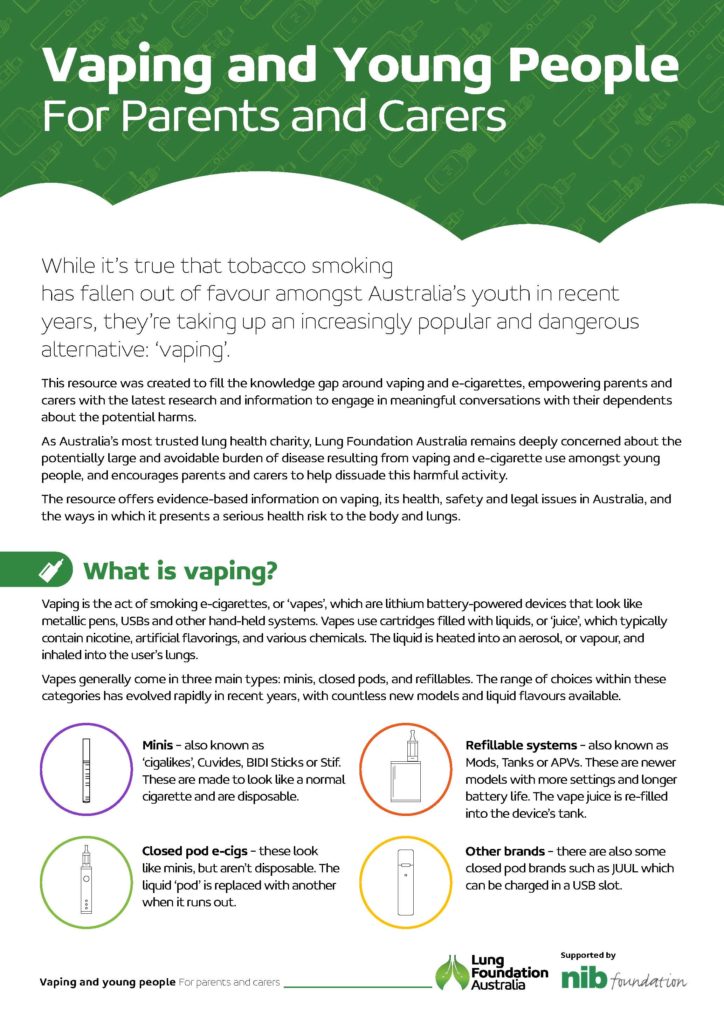Many young people take up vaping thinking that it helps with feelings of stress and anxiety. In reality, it could be making it worse.
It is normal for everyone to feel stressed, anxious, or down sometimes and some people may use vaping as a coping mechanism. Vapes can speed up a person’s heart rate making them feel more stressed or anxious. This is from the nicotine and can be a sign of nicotine dependence. When a person tries to quit, nicotine withdrawal can leave them feeling anxious or depressed.
Nicotine withdrawal symptoms to be aware of include feeling irritated, anxious, or down, trouble sleeping, not being able to focus or think clearly, and changes in appetite.
The cycle of nicotine addiction and withdrawal can create feelings of stress, anxiety, and depression which impact mental health by causing or worsening stress, anxiety, and other mood disorders. It can be a tough temporary cycle to break but the body will re-learn how to function without nicotine.
Some of the effects on health from toxic chemicals in vapes includes:
- Lung irritation and disease
- Heart disease
- Skin irritation
- Increase in blood pressure
- Nicotine dependence
- Gum disease and tooth decay
- Memory and learning problems
- Attention disorders
- Impulse control
Supporting Young People
Parents and carers can play a vital role in supporting young people to quit vaping. Engage in open, non-judgmental conversations. Encourage healthy coping mechanisms for stress and anxiety, such as physical activity, breathing exercises, and mindfulness. Seek support from healthcare professionals and resources like Quitline for additional help
By understanding the risks and providing support, parents and carers can help young people make healthier choices and protect their mental and physical health. For more information about lung health visit www.lungfoundation.com.au
Was this page helpful?
Good job! Please give your positive feedback
How could we improve this post? Please Help us.
